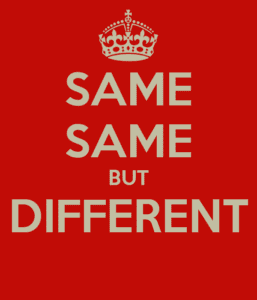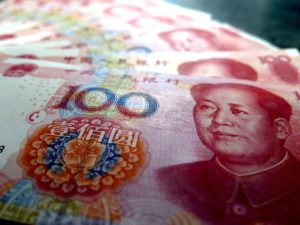By Roberto De Vido*
The Economist recently noted in a column headline that Forced labour in China presents dilemmas for fashion brands. The writer introduced the Xinjiang Production and Construction Corps (XPCC), which he described as “a nearly 3m-strong paramilitary-style business in western China” founded in 1954 to provide economic incentives for recently demobilized soldiers (Korean War veterans) to move into an area dominated by Muslim Uighurs.
XPCC reportedly “retains a militia of 100,000, charged with rooting out extremism” (in support of People’s Liberation Army and Ministry of Public Security forces), but its main business these days is . . . business, operating as the China Xinjian Group. Though the XPCC is active in many industries (from information technology to plastics to cement), its roots are in agriculture, and it produces almost 30% of China’s cotton, which in turn accounts for 20% of global cotton production. [The Xinjiang region produces over 80% of China’s cotton.]
Which brings us back to the dilemma faced by non-Chinese companies manufacturing and sourcing in China.
On July 31 the United States imposed sanctions under the Magnitsky Act against the XPCC and its senior officials for their connection to human rights abuse against ethnic minorities in Xinjiang. Ethical global companies have worked hard to distance themselves from Xinjiang organizations that utilize Uighur forced labor, but earlier this year the Australian Strategic Policy Institute (ASPI) identified 83 foreign and Chinese companies directly or indirectly benefiting from the use of Uighur workers outside Xinjiang through potentially abusive labor transfer programs as recently as 2019.
The Economist notes: “Until recently, when those brands fretted about labour conditions in Xinjiang, they sent auditors to inspect the factories. That stopped when they began to be monitored by Xinjiang authorities, ‘as if doing something wrong’, says one. Without audits, Xinjiang has become a black hole in the supply chain, making it almost impossible for Western firms to retain suppliers there. Verifying the provenance of that cotton to show that none of it is from Xinjiang is ‘the hardest work we have ever done,’ an auditor laments.”
China watchers will remember the case of investigator Peter Humphreys and his wife/business partner Yu Yingzeng, a Chinese-born American citizen, who were jailed in 2014 as a result of investigative work they were undertaking for pharmaceutical company GlaxoSmithKline (GSK).
Leaving aside the merits of the case against GSK, which admitted wrongdoing, the arrests of GSK’s investigators was apparently a case of killing (i.e. imprisoning) the chickens (i.e. Humphreys and Yu) to scare the monkeys (i.e. monkeys were thinking of undertaking due diligence investigations).
According to one executive quoted in The Economist story, the problem for global firms attempting to safeguard human rights within their supply chains, especially in China, with global tensions extremely high, is that, “The bar of guilt is incredibly low. The bar of innocence is extremely high.”
As it should be.
Let’s face it, the collective record of companies safeguarding the rights of their workers over the past 2,000 years is, on average, poor.
In the 1930s, a handful of global companies continued to conduct business with Nazi Germany despite rumors (which eventually became more than rumors) that Adolf Hitler was purging the country of its Jewish population, among other horrors.
The past five years have seen a dramatic increase in public calls for CEOs to take public stands on social and environmental issues not directly related to their company’s core businesses, and today, social media platforms allow human rights advocates (and we’re all human rights advocates, aren’t we?) to take stories global within hours.
Reputation management is a full-time job for organizations (and their executives), and one stumble can taint a company’s brand for decades (remember when BP CEO Tony Hayward complained during the Deepwater Horizon oil spill that “I want my life back”? Less than a month later, he had been replaced).
In general, it’s wise to assume bad news will leak out eventually; transparency is critical to maintaining stakeholder trust. The problem in China is confirming that what you are being told is the truth. The companies named in the Australian Strategic Policy Institute report mentioned above mostly responded soberly. Among the best responses were those from GAP and Puma.
However, a significant difficulty highlighted by nearly all the respondents to the ASPI report is the difficulty of being certain that what even longtime suppliers/partners are telling you is true. Former U.S. President Ronald Reagan used the phrase “trust but verify” regularly in his nuclear weapons negotiations with Soviet leader Mikhail Gorbachev, to the point that Gorbachev finally said, “You repeat that at every meeting. Reagan replied, “I like it.”
So what’s a CEO with a Chinese supply chain supposed to do? The Economist notes that some textile and garment companies are hoping DNA testing will provide assurance that raw materials are not being sourced from ethically dubious sources.
And yes, maybe that will some day be viable and affordable.
Until then, however, my view is simple: as a business owner or manager, you want to be in a position to assure your employees, customers and stakeholders that your business respects human rights across all its operations including throughout its supply chain. If you cannot assure your employees, customers and stakeholders of that (perhaps because the government of the country in which you are operating actively prevents you from doing the due diligence you undertake in other markets), you should think about making changes.
Be on the right side of history.
























